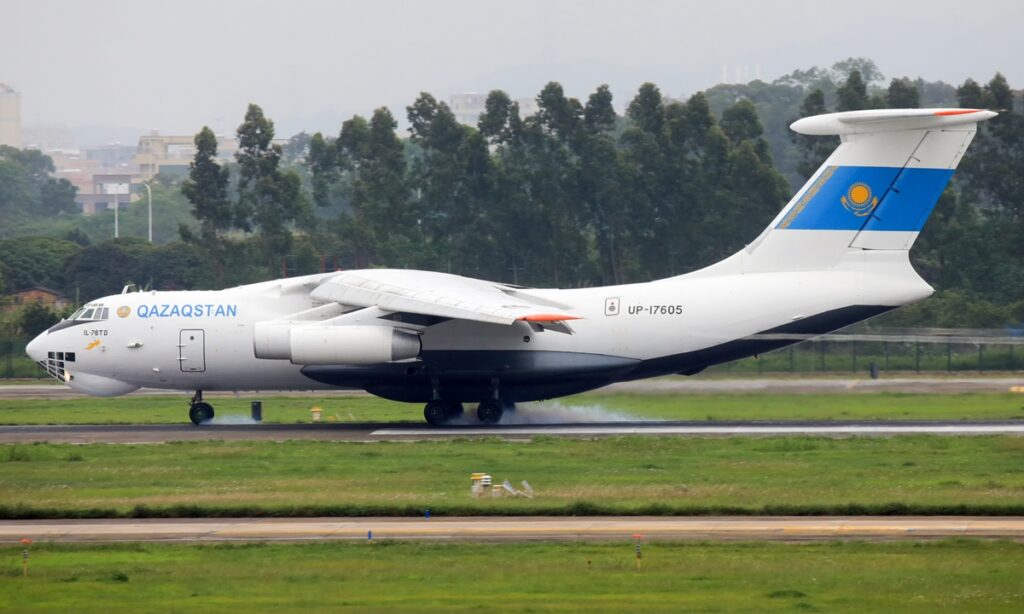Despite the Western media hype, Kazakhstan and Central Asia claim to have their own vision about the situation in the Xinjiang Uygur Autonomous Region and security cooperation between China and Kazakhstan, an expert said Tuesday.
Gulnar Shaimergenova, director of the China Studies Center, Kazakhstan, told the Global Time in an email reply that today, everything that concerns China is in the focus of attention of the Western media and think tanks. Xinjiang is no exception.
Hype not to last
“If we look at the fact, today other destinations, such as [the island of] Taiwan, [Southwest China’s] Tibet Autonomous Region, Hong Kong, South China Sea, etc., attract a lot of attention. China has become too successful – the West has underestimated the potential of the Chinese people to rebuild,” Shaimergenova said.
When asked if Xinjiang is becoming a chess piece in Western media’s agenda, she said that the West uses Xinjiang and other issues as competition measure – “that’s the reason. And so today, any topic on the PRC that may be unpleasant for the Chinese government is used. That’s classics of geopolitical competition and there is nothing new in it.”
However, Shaimergenova has her own view when it comes to fake news about Xinjiang.
“For Kazakhstan, Xinjiang is the gateway to China and Asia Pacific, and we perceive the situation differently than the Western media and experts try to show us. In Kazakhstan and Central Asia we have [our] own vision,” she said, defining her stance about Xinjiang.
When it comes to local security assessment, she has her own conclusion.
“We can see that Xinjiang has increased its security level, and its economy is growing. We expect Xinjiang to be a stable, secure and prosperous region, which is beneficial for Kazakhstan and Central Asia. After all, our economies are geographically interconnected,” Shaimergenova stressed.
Other issues about the situation in Xinjiang are an internal matter for China. This is one of the factors of successful cooperation between countries – “we respect each other’s rights in the sovereign development of our states,” she said.
“We are neighbors with China’s Xinjiang and we consider this area in the context of regional security and real opportunities to recreate the economic energy of the Silk Road,” she added.
Western media sees this issue as a media hype and hot topic for their audiences in the context of contemporary relations between China and the US. That’s why Xinjiang is a deliberately politicized topic right now, Shaimergenova pointed out.
From her perspective, such a media environment will not last though.
“All this is not for long. Tomorrow, China-US relations will become normal and the journalists will find another hot topic and switch to it – it always happens,” she said.
Ancient Eastern wisdom says “dogs are barking but the caravan moves on.”
“I think that our countries need to cooperate, develop trade and increase the prosperity of the economy – this is strategically important. And everything else is temporary,” Shaimergenova said.
Bilateral security cooperation
Meanwhile, China’s External Security Commissioner of the Foreign Ministry Cheng Guoping held a video meeting of China-Kazakhstan Inter-departmental and Inter-regional Security Cooperation Mechanism Leaders with First Deputy Secretary of the Security Council of the Republic of Kazakhstan Marat Shaikhutdinov on January 14, according to the Chinese foreign ministry.
Both sides exchanged views on relevant issues on China-Kazakhstan relations, and the establishment of the inter-departmental and inter-regional mechanism.
Shaimergenova said that she believes the bilateral security cooperation is a positive move.
Kazakhstan and China have been cooperating very constructively on security issues since the very first days. “I think that the Shanghai Cooperation Organization (SCO) plays an important role in this issue. We have common tasks – countering terrorism, religious extremism, protecting borders, ensuring cybersecurity,” she said.
Tracing the history on the cooperation in security, Shaimergenova said that over the years, the SCO has allowed our countries to build a trust-based dialogue at both the regional and bilateral levels. “I think that today the SCO has a wide range of mechanisms and dialogue platforms for cooperation between the Kazakh and Chinese security agencies,” she said.
In addition, given that many threats today are of a cross-border nature, the SCO provides an opportunity for the countries of Central Asia, South Asia and China, together with Russia, to conduct a productive dialogue on security issues.
“Thanks to this, our part of the continent – in particular, Central Asia – remains stable and secure. And it is beneficial for everyone. I am sure that security has become an important basis for the effective development of the Belt and Road Initiative during these years,” she noted.
Kazakhstan sent a transport plane to Guangzhou, capital of South China’s Guangdong Province, on April 22, 2020, to deliver anti-epidemic supplies. Photo: VCG


